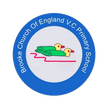Maths
At Brooke Primary School
We aim for all children:
- to become fluent in the fundamentals of maths, through varied and frequent practice with increasingly complex problems over time, so that pupils develop conceptual understanding and the ability to recall and apply knowledge rapidly and accurately.
- to reason mathematically by following a line of enquiry, conjecturing relationships and generalisations, and developing an argument, justification or proof using mathematical language.
- to be able to solve problems by applying their mathematics to a variety of routine and non-routine problems with increasing sophistication, including breaking down problems into a series of simpler steps and persevering in seeking solutions.
To help us achieve this, in September 2022 we started to use the White Rose Scheme of Work. The programme’s core philosophy revolves around the concept of ‘small steps‘ in learning, a methodology that ensures a solid understanding of mathematical concepts through incremental progression. White Rose Maths not only focuses on the mastery of numerical skills but also fosters critical thinking and problem-solving abilities in young learners.
What does Maths look like at Brooke VC Primary School?
The approach encompasses a concrete, pictorial, abstract method that is key to establishing and embedding a deeper understanding of Mathematics. Concrete manipulatives (counters etc.) are used to enable pupils to visualise mathematical concepts.
Once children are able to access a problem using concrete apparatus, pictorial representations are used to facilitate learning, followed by being able to complete problems using more abstract mathematical methods.
What is Concrete?
Concrete is the ‘doing’ stage, using concrete objects to model problems and to bring concepts to life by allowing children to experience and handle physical objects themselves.
What is Pictorial?
Pictorial is the ‘seeing’ stage, using representations of the objects to model problems. This stage encourages children to make mental connections between the physical object and abstract levels of understanding by drawing or looking at pictures, diagrams or models which represent the objects in the problem.
What is Abstract?
Only once a child has demonstrated that they have a solid understanding of the ‘concrete’ and ‘pictorial’ representations of a problem, can they access more abstract representations involving mathematical symbols. The stages ensure clear progression and extension in learning.
Times Tables Rock Stars
In Key Stage 2 children are taught to become fluent in their times tables through a variety of methods including the use of Times Tables Rock Stars which is a fun game which adapts to the children's knowledge helping them to learn each table for instant recall.
Early Maths
Early maths in Brooke Primary School focuses on developing foundational skills through engaging, hands-on activities. Children learn basic concepts like counting, recognising numbers, and understanding addition and subtraction. Early maths also introduces shapes, patterns, and measurements, helping children develop spatial awareness and logical thinking, often using objects and visual aids to make abstract ideas more concrete. Teachers emphasise problem-solving and reasoning, encouraging curiosity and confidence in working with numbers. Teachers use interactive activities such as games, songs, and real world concepts to make learning feel like play, which boosts confidence and curiosity, making maths fun and meaningful. As children progress, they start recognising relationships between numbers and build a deeper understanding of mathematical concepts, setting the stage for more complex problem-solving skills in later years.
How can I support my child in Maths?
Encouraging a love of numbers throughout childhood helps children to develop strong foundation of understanding, which is often referred to as having good Number Sense. Children with a strong number sense understand the relationships between numbers and can be more creative, systematic and reflective mathematical thinkers.
- Engage with the maths around you – look for shapes (road signs) and numbers (number plates) and discuss what you see – and don’t see.
- Play card and board games with your child – look for patterns and discuss strategies with each other.
- Shop together and allow your child to compare and calculate costs of items in your shopping basket.
- Cook together – look at recipes and compare the measures of items, weigh ingredients and look for opportunities to adjust portions in recipes.
- Take the bus somewhere and ask your child to help to read the timetable and to plan your journey.
- Ask your child to tell you the time whenever possible allowing them to familiarise themselves with clocks.
Key documents
| Name | Format | ||
|---|---|---|---|
| Files | |||
| WRMNationalCurriculumandRTPCoverageProgressionDocument.pdf | |||
| Springkeychangesdocument.pdf | |||
| CalculationPolicyMultiplicationandDivision.pdf | |||
| CalculationPolicyAdditionandSubtraction.pdf | |||
| AutumnKeyChangesDocument.pdf |
